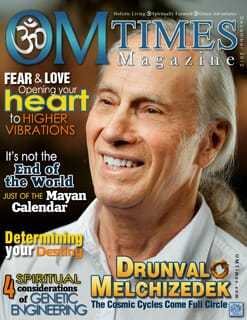Buddha’s Boat
By Lee and Steven Hager
Where would Buddha keep his boat? The brain wants to come up with a clever answer to what sounds like a tricky riddle. Did Buddha have a boat, or does the boat stand for something else? The 19th century mystic Sri Ramakrishna likened spiritual masters to “big steamships which not only cross the ocean themselves but carry many passengers to the other shore.” Using that symbolism, we might say that Buddha was the boat that carries others to awareness. But the Dhammapada, a collection of the sayings of Buddha, says, “All the effort must be made by you; Buddhas only show the way.” However, crossing a body of water is often used to symbolize the transition from spiritual sleep to awareness. Buddha used this symbolism when he said:
“Few are those who reach the other shore; most people keep running up and down this shore.
What do I teach? Only what is necessary to take you to the other shore.”
In this case, the boat symbolizes whatever might assist us in reaching the shore of awareness. It would seem that if something had helped us ‘wake up,’ we would treasure it, but Buddha had a very different idea. To illustrate the point he wanted to make, he told the story of four travelers who used a boat to cross a river. After crossing, they were so taken with the usefulness of the boat; they decided to keep it with them always. They figured the only way they could continue on their journey and keep the boat was to carry it on their heads. Now something that had been incredibly helpful quickly turned into a burden. The boat not only blocked their sight, it weighed them down and slowed their progress to a snail’s pace. Still, they loved the boat for the good it had done and they refused to leave it behind. They reasoned that it would be worth the effort to haul it with them just in case they encountered another river.
There are many ‘boats’ available to us: religion, ‘Holy Scriptures,’ spiritual practices, rituals or even mystical experience. Of course the point the Buddha was making is that all these ‘boats’ serve as a means, but none of them are the end, the goal. We all use maps or GPS to get us to a destination, but once we’ve arrived we put them away. If we travel the same route again, we don’t pull them out and behave as if we have no knowledge of the journey. Unfortunately, fear often causes us to hang on to the means we’re comfortable with, sticking to it long after we could have put it aside and moved on. Going back to our travelers, we could easily imagine them hauling the boat until they became so exhausted they decided to give up the journey rather than their beloved boat.
One of the most difficult ‘boats’ to set aside is our false identity with the ‘self,’ the body and personality we believe we are. From infancy we slowly begin to develop belief in our identity as a separate individual. Our eyes tell us that the universe is made up of separate forms. Social conditioning gives us an identity in terms of gender, race, nationality, political affiliation, career, religion, or family that we continually reinforce. We become invested in the stories others tell us about ourselves, and become particularly attached to the stories we create about ourselves.
But when we cross the spiritual river and reach the shore of awareness we begin to see that our world is not what we thought it was and we are not at all who we thought we were. We see that there is an observer that exists behind the façade of body and personality, the Self that is an immortal, indivisible facet of the Divine. At that point, we must ask ourselves if we’re willing to leave the boat behind and continue on the journey to Self, or will we still cling to the self, fearing that we might find it valuable once again?
The spiritual journey is made by letting go of burdens until nothing stands between you and the Divine. Ask yourself again where Buddha would keep his boat and you will answer with confidence that once it had served its purpose, it would be left behind. Take a close look to see if you’re burdened down with valueless thoughts or attachments. Let them go and you’ll ask yourself why you carried them around so long.
Click HERE to Connect with your Daily Horoscope!
Lee and Steven Hager are the authors of several books exploring quantum physics, gnosis and the perennial philosophy, including The Beginning of Fearlessness: Quantum Prodigal Son
OMTimes Magazine is one of the leading on-line content providers of positivity, wellness and personal empowerment. OMTimes Magazine - Co-Creating a More Conscious Reality





